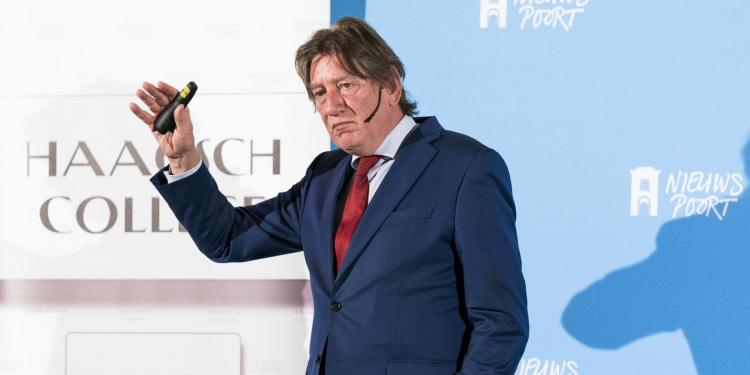The debate about the agricultural sector is narrowing to a discussion about nitrogen and numbers of animals. The cabinet is losing sight of how important the sector is to the Netherlands. ‘Nonsense about period commas’, says Rob de Wijk, professor at Leiden University and director of the The Hague Center for Strategic Studies (HCSS).
We must leave it to the sector how they want to achieve the targets set by the government for nitrogen emissions. And above all, we need a new vision on the strategic importance of the sector, ‘said De Wijk during a digital meeting of the Limburg Agriculture and Horticulture Association (LLTB).
The professor is concerned about the advance of China. “A country with a huge imbalance when it comes to the number of mouths to feed and the amount of land available to grow that food.”
China is looking for solutions for this, such as buying up agricultural land all over the world. We can see China’s food security problem as a threat, but according to De Wijk it is also an opportunity for the Dutch agri-food sector.
“If the sector becomes too small, you lose innovative power”
Not a competitor
Due to their lack of agricultural land, the Chinese will never compete with us in that area’, says De Wijk. “But China is innovating enormously in the field of high-tech and will probably play a very important role in that sector in the near future.”
According to De Wijk, the agricultural sector is one of the few sectors in the Netherlands that can resist an advancing China. ‘It is important to create strategic dependence.’
That is why the professor considers it a strategic blunder if the Dutch agri-food complex is being eroded. ‘As a government you should stimulate innovation and entrepreneurship. And that is precisely what you kill if you prescribe exactly how to reduce the amount of nitrogen, for example by determining the size of the livestock. ‘
Loss of innovative power
In addition, De Wijk fears that marginalization of the sector will cause it to fall below the critical threshold value that is necessary to initiate innovation. ‘If the sector becomes too small, you lose innovative power, but also, for example, the knowledge base among universities such as Wageningen’s.’
According to De Wijk, the Dutch government must be well aware of the value of the total agricultural and horticultural cluster. ‘That is 140 billion euros annually in the Netherlands alone. And they provide 750,000 jobs, 8 percent of our population works in this sector. ‘
‘Don’t focus on how to reduce nitrogen’
De Wijk’s advice to the cabinet is therefore: ‘Do not focus on how to reduce nitrogen, but set clear objectives and, above all, come up with a vision in which you strengthen the sector by using it as a strategic leverage towards China. Make use of the structural shortages there and make use of entrepreneurship in Dutch agriculture and horticulture. ‘
LLTB chairman Léon Faassen, who is also a member of the board of LTO Netherlands, is delighted with De Wijk’s analysis and advice. ‘We have been warning for years about the dangers of a one-sided political discussion about the agricultural sector. Continuing on this path will have disastrous consequences for the future of our prosperity. I hope that politicians will wake up soon and take the advice of Rob de Wijk to heart. ‘





